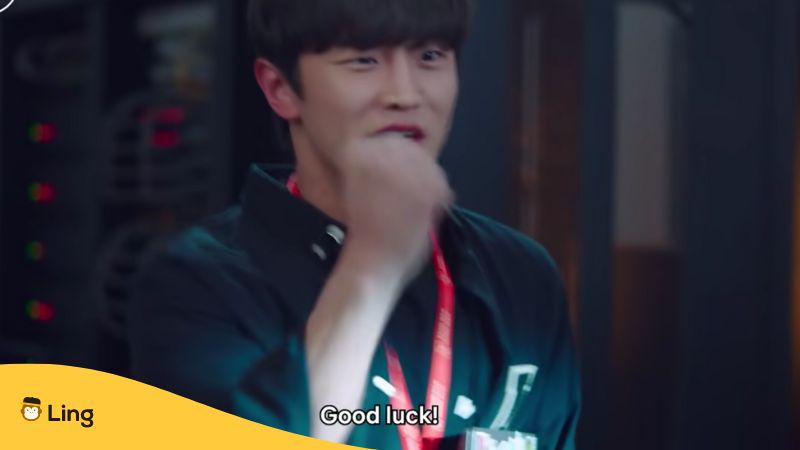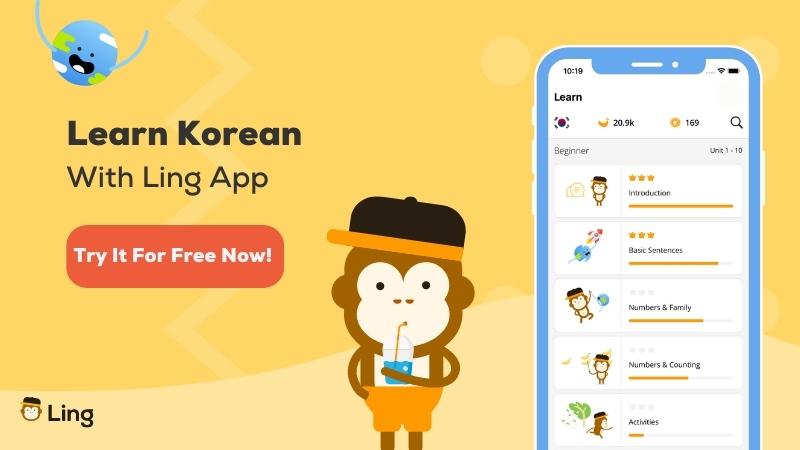Are you familiar with the popular Korean expression “화이팅” (hwaiting)? This phrase, often used in K-dramas, is a cheer of encouragement for someone in need of a confidence boost. But did you know that there are many other ways to express good luck in Korean? Let’s find out the best expressions in this epic Ling guide!
Just like in Korean dramas, cheering someone up and wishing them good luck makes them feel better. Whether they are your close friend or just a colleague, simple good luck and a pat on the back would mean so much to them. You see, wishing someone good luck is a way of letting the other person feel that they are being cared for and remembered. This is also a way of showing courtesy and respect towards others, which is a very important thing in Korean culture.
Ways To Say Good Luck In The Korean Language
Before anything else, we should learn the Korean word for luck. In the Korean alphabet, luck is written as 운 (un). But there are other ways to express it in Korean. For instance, you can also say “good luck” with the Korean words 좋은 운 (joeun un) and 행운 (haengun). However, the word 행운 (haengun) can also mean “good fortune.”
On the other, the Korean word for the English word “lucky” is 운이 좋다 (uni jota). It can also be expressed as s 행운이다 (haengunida) which means the same as 운이 좋다 (uni jota) – fortunate.
After learning these basic words, let us now learn different Korean phrases used to wish a person good luck.
Fighting – 화이팅 (Hwaiting)
Example Sentence: 항상 화이팅! (hangsang hwaiting!) – Good luck always!
Remember the scene in the K-drama Itaewon Class where DanBam re-opened, and they have gone live? One of the lines they said is “화이팅 (hwaiting)” or “fighting” in English. This expression doesn’t translate to fighting or going in a fight in English.
Koreans use this to encourage someone or wish them good luck. If you’re a K-drama fan, you have undoubtedly heard of this a lot of times. This is actually one of the most popular and easiest ways to say good luck in Korean.

Good Luck (Formal) – 잘보세요 (Jal Boseyo)
Example Sentence: 공연 잘 하세요! (gongyeon jal haseyo!) – Good luck with the performance!
In Korean culture, it’s important to be mindful of the appropriate level of formality when speaking to elders or those of a higher social rank. When expressing good luck in formal situations, the phrase “잘보세요” (jal boseyo) is commonly used. This phrase shows respect and is a polite way to wish someone well. Remember, using the wrong level of formality can be seen as disrespectful in Korean culture.
Good Luck (Informal) – 잘봐(Jalbwa)
Example Sentence: 오늘 시험 잘봐! (oneul sihom jalbwa) – See today’s exam well!/Good luck with today’s exam!
Another way of saying Good luck in Korean is 잘봐 (Jalbwa). Please remember that this is a very informal phrase, so you might want to use it to just friends or people the same age as you whom you both decided to be casual with. The direct translation of this is ‘see well.’ It is usually followed by the words 시험 (siheom), which means exam, or 면접 (myeonjeob), which means job interview.
Good Luck (Standard) – 잘봐요 (Jalbwayo)
Example Sentence: 면접을 잘봐요! (Myeonjeobeul jalbwayo!) – See the job interview well!/ Good luck with your job interview!
This next phrase is in the standard form. It isn’t too formal, but it isn’t too informal also. If the person you wish luck to isn’t your partner or a close friend, add 요 (yo) to the end of the word to make it more polite. The phrase becomes 잘봐요 (jalbwayo).

Other Ways To Say Good Luck In Korean
Now that you have learned the formal, standard, and informal ways of saying good luck in Korean, let us now learn a few ways to say good luck in specific situations.
Good Luck With Your Test – 시험 잘 보세요 (Siheom Jal Boseyo)
In Korean culture, education is highly valued, and students often strive to do their best. When wishing someone good luck on a test or exam, the formal phrase “시험 잘 보세요” (Siheom Jal Boseyo) is a respectful way to convey your support. It can be used with anyone, especially those older or in a higher position. For more informal situations, such as with close friends, you can use the phrase “시험 잘 봐” (siheom jal bwa), which also means “do well on your exam.” Remember that this phrase is more casual and inappropriate for formal situations or with people you don’t know well.
Good Luck With Your Interview – 면접 잘 보세요 (Myeonjeop Jal Boseyo)
In Korean culture, job interviews are considered essential and can be nerve-wracking. When wishing someone luck before an important job interview, you can say “면접 잘 보세요” (myeonjeop jal boseyo) as a formal and respectful way to convey your support. For a more casual expression, you can say “면접 잘 봐” (myeonjeop jal bwa). However, remember that this phrase is best used with close friends or in informal situations.
You Can Do It – 할 수 있어요 (Hal Su Isseoyo)
Another way to say good luck in Korean is 할 수 있어요 (Hal Su Isseoyo). If someone is about to do something they are nervous about, it won’t hurt to cheer them up by saying this phrase.
All The Best – 행운을 빌어요 (Haenguneul Bireoyo)
Wishing someone all the best 행운을 빌어요 (Haenguneul Bireoyo) is a way of showing your care and concern to someone. Since this is in the polite form, you can use it in many situations in everyday life.
Learn Korean Now!

Learning Korean can be challenging, but with the Ling app, it can also be fun and exciting. With advanced features and a wide range of lessons, you can improve your Korean language skills in record time. Whether you’re looking to read, write, or speak Korean, the Ling app offers a variety of engaging and interactive lessons that feel more like playing a game than studying.
So why not make today your lucky day and try the Ling app? With its user-friendly interface and effective teaching methods, it’s a great way to learn Korean and unlock a whole new world of culture and language. Download it today via Google Play Store or Apple App Store now!



































































